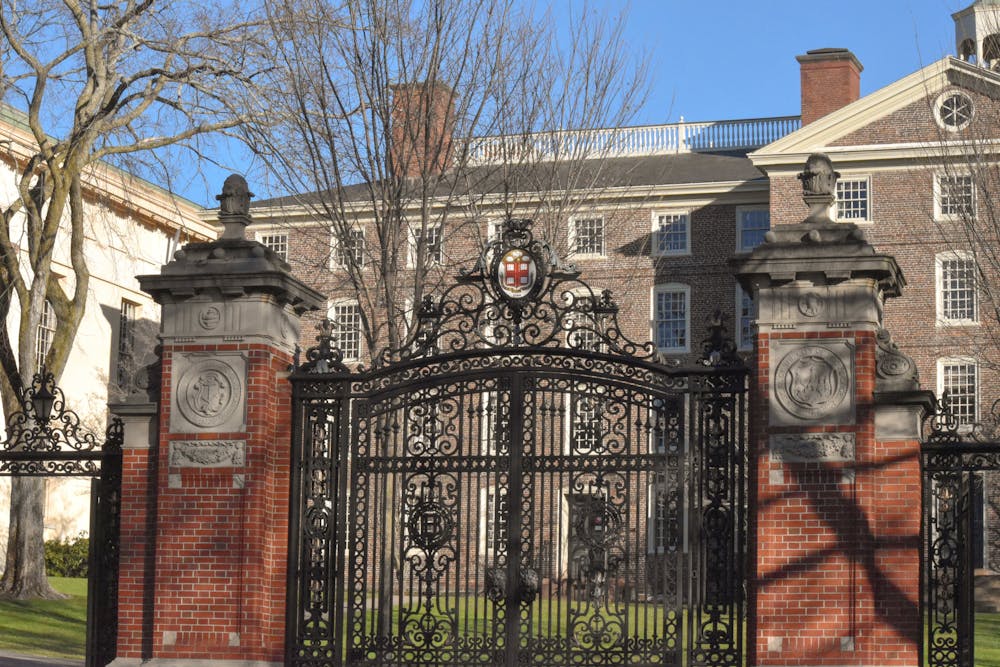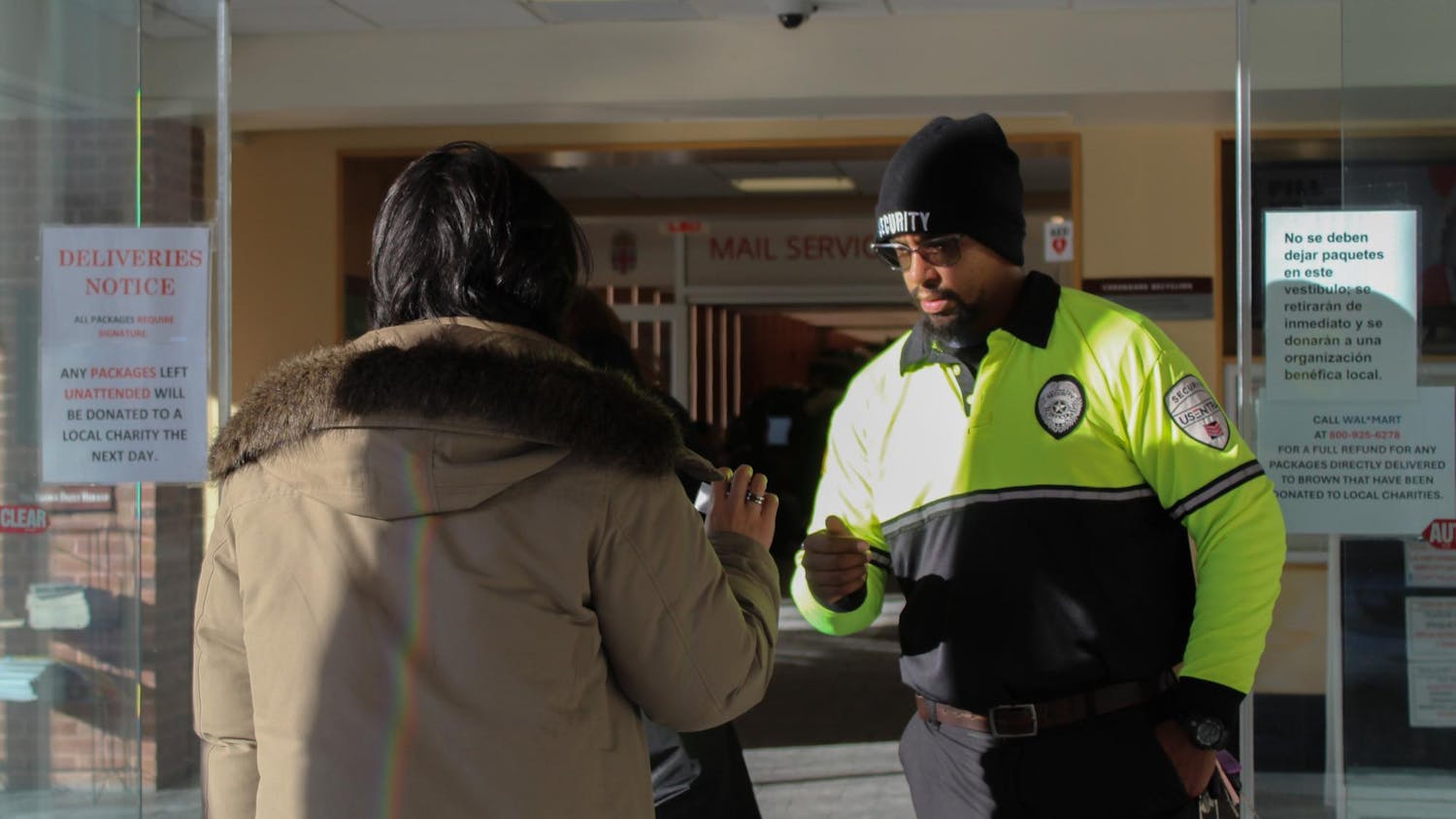When Elon Collins ’23.5 found out that she had been nominated to apply to speak at the class of 2023’s commencement in an email from the College last December, she began wondering: “How am I going to distill my entire Brown experience into like, 1000 words?” she told The Herald.
“I was like, ‘this is really cool,’” Collins said. “I would love to speak at commencement.”
Collins, diagnosed with blood cancer in winter 2021, had to take medical leave in the 2022 spring semester, making her a member of the class of 2023.5 — a status that the friend who nominated her noted, she said.
But when Collins wrote to Lindsey Garcia, assistant dean of the College for junior/senior studies, attempting to ensure that she could apply to speak at spring commencement, Garcia informed her that she was not allowed to apply in an email reviewed by The Herald.
“The only reason I’m a 23.5er is because I had cancer,” Collins wrote in a response to Garcia reviewed by The Herald. “I didn’t plan for or ask for that.”
Garcia wrote that she cannot “discuss specific student conversations or inquiries” in an email to The Herald.
Collins described being frustrated with not being recognized as a member of the class of 2023 as a result of her uncontrollable circumstances.
Commencement serves to celebrate the accomplishments of the graduating class, with a speech from a guest speaker and direct addresses to the senior class delivered by two nominated senior speakers, according to a University press release. Midyear graduates have a separate celebration with different speakers and receive their diplomas at the following commencement.
Candidates for senior speaker roles are first identified through a nomination process and are then selected by the University’s Commencement Speakers Selection Committee after submitting drafts of their prospective speech for review, according to Garcia.
The University’s Faculty Rules & Regulations require that undergraduate commencement speakers come from the “graduating senior class," Rashid Zia ’01, dean of the College, wrote in an email to The Herald. The speakers are “selected based on the expectation that they will complete their degree requirements and be conferred their degrees at commencement."
The rules detail that a special committee selects “undergraduate students from the graduating Senior Class to be commencement speakers.”
In an email reviewed by The Herald, Collins was informed that she had been nominated to submit her speech.
Zia wrote that the nomination form is “designed to be as inclusive as possible” and accepts nominations for all students who have senior standing in the spring, as they could be “potentially eligible to complete degree requirements.”
After Collins asked Garcia for clarification on her eligibility to speak at the spring 2023 ceremony, Garcia informed her that the University only allows speakers who “have completed or will complete during this academic year to speak at commencement,” according to an email reviewed by The Herald. Garcia informed Collins that she would be eligible to submit her speech for the Midyear Completion Ceremony in December 2023 or for commencement in 2024.
“I was floored,” Collins said. “I remember thinking, ‘Why would you even send this to me? Why would you put me through this whole process or even insinuate that I could do this if it’s apparently not something that I can do?’ ”
Collins responded to Garcia in an email reviewed by The Herald, which detailed her medical history and explained that she would be studying abroad in fall 2023 — in addition to noting that she would walk with the class of 2023, which was “still her class."
“I don’t know much about (the class of 2024). Nor would I be able to connect with them in the way that I can with 2023,” she wrote.
Garcia responded with a note telling Collins that she was sorry to hear about her “challenging circumstances” — but that the requirement that students must complete “all degree requirements” to be eligible to speak at commencement does “not have wiggle room.”
Collins told The Herald that she struggled to find any online information about the policy for selecting senior speakers except for an article about commencement in Encyclopedia Brunoniana. When she asked Garcia for more information, Garcia instead asked her to make an appointment to meet, which Collins did, according to the emails.
Collins added that the article — which detailed multiple changes to the process for selecting orators — made her “more confused, if anything.”
Though the article reads that “from the beginning the principal speakers at the Commencement exercises have been graduating seniors,” it does not specify graduating status as a requirement.
According to the Midyear Completion website, the commencement following a student’s midyear completion represents their “official commencement” in which their name appears in the printed program.
It “feels a little bit ridiculous,” Collins said. “I’m not coming back for the 2024 commencement, so I’ll just be this random floating name in that bulletin.”
Gabrielle Smith ’23.5 said that she will walk in this year’s commencement, despite graduating a semester later than most of her class.
“The University has definitely historically seen a good number of .5ers,” she said. “Whether it was due to medical leave, or for facing inequities because of the pandemic, a lot of people (have taken) time off for whatever reason.”
Smith added that she finds the refusal of midyear graduates as senior speakers unfair. “If they’re going to let people walk during graduation,” she said, “they might as well let them speak.”
Clarification: This article has been updated to include comment from Dean of the College Rashid Zia ’01 regarding the eligibility of commencement speakers and edited to reflect Zia's comments. The headline has also been updated to more accurately represent the contents of the story.

Sofia Barnett is a University News editor overseeing the faculty and higher education beat. She is a junior from Texas studying history and English nonfiction and enjoys freelancing in her free time.





